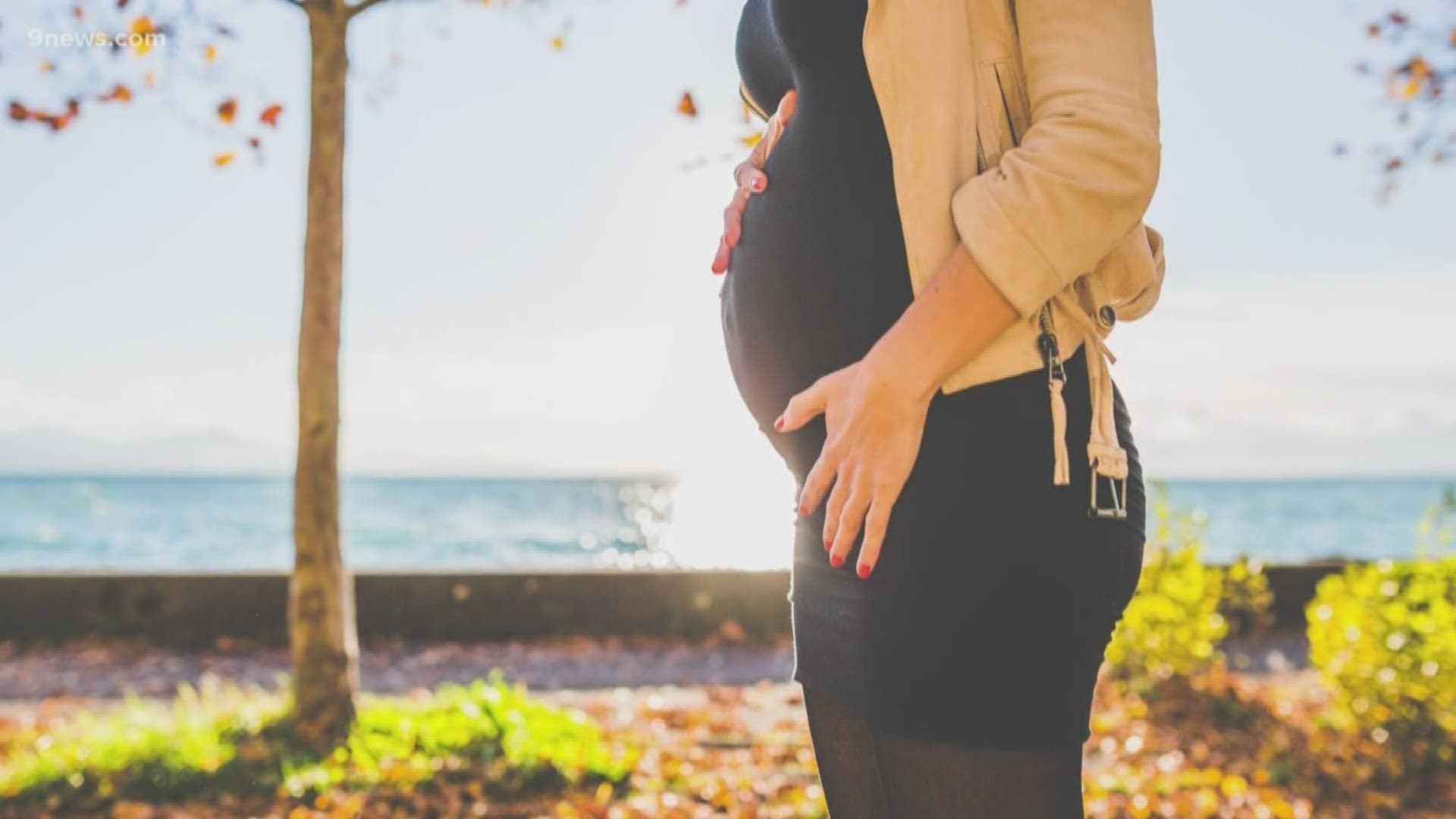DENVER — Colorado's first COVID-19 case was announced on Thursday, March 5.
COVID-19 is caused by a new coronavirus that first appeared in Wuhan, China in late 2019. Symptoms of COVID-19 can include fever, cough and breathing trouble, and can appear two to 14 days after exposure, according to the Centers for Disease Control and Prevention (CDC).
Most develop only mild symptoms. But some people can develop more severe complications requiring hospital admission, ICU admission or can be fatal. The the elderly or those with other medical complications are at higher risk for fatal complications.
Below is a list of frequently asked questions regarding COVID-19 in Colorado.
What is the coronavirus, and what is COVID-19?
Coronaviruses are a large family of viruses that cause illnesses ranging from common cold to more severe diseases, such as Middle East Repository Syndrome (MERS-CoV) and Severe Acute Respiratory Syndrome (SARS-CoV), according to the World Health Organization (WHO).
The coronavirus disease 2019, or COVID-19, is the name given to the disease caused by the new strain of coronavirus (SARS-CoV-2).
What precautions can you take to avoid COVID-19?
- Avoid close contact with anyone who is sick.
- Avoid touching your eyes, nose, and mouth with unwashed hands.
- Stay home from school and/or work.
- Cover your coughs and sneezes with tissues, and then throw the tissues away.
- Regularly use disinfectant products.
- Continually wash your hands with soap and warm water for at least 20 seconds at a time, or hand sanitizer with at least 60% alcohol if water and soap are not available.
- Practice social distancing.
What should you do if you think you contracted COVID-19?
If you believe you may have contracted COVID-19, you should assume you likely do have it and only contact your health care providers if your symptoms are not mild or if you are in a high risk group.
Officials said it is vital to call ahead before going to a doctor's office or emergency room to prevent the spread of illness.
When can a COVID-19 patient be released from isolation?
Current CDC guidance for when it is OK to release someone from isolation is made on a case-by-case basis and includes meeting all of the following requirements:
- The patient is free from fever without the use of fever-reducing medications.
- The patient is no longer showing symptoms, including cough.
- The patient has tested negative on at least two consecutive respiratory specimens collected at least 24 hours apart.
Does a recovered patient need to practice social distancing, too?
Yes. Here's what 9Health Expert Dr. Payal Kohli said: It's mainly because we don't know a lot about the virus and there have been case reports out of China that show people who have gotten the virus, recovered, tested negative for the virus, and had then gone on to test positive for having viral particles in their respiratory secretions, even without having symptoms. Researchers don't know entirely what this means, whether they got infected again or still had some viral shedding from the first illness, or whether this was a testing issue. So, for that reason, it's important to follow guidelines.
Can someone spread the virus without being sick?
According to the CDC, people are thought to be the most contagious when they're most symptomatic. CDC says some spread might be possible before people show symptoms or some may have no symptoms at all.
When will we see the impact of social distancing on COVID-19?
Current test numbers lag behind what reality is at any given moment, but even while parts of Colorado implemented social distancing a week ago, to some degree, it's too soon to know how much it's helping. If someone catches the virus, it might be at least another five days before that person shows symptoms, if not 12 or 14 days. What we're seeing now (March 23) is a result of our behavior from perhaps up to two weeks ago. So, it takes at least a couple of weeks to even begin to see the benefits of social distancing.
What is the risk to pregnant women?
We have limited data on pregnant women. In a small case study published in the The Lancet of nine pregnant women, the risk appears to be the same as the general population. The clinical characteristics reported in pregnant women with confirmed COVID-19 infection are similar to those reported for non-pregnant adults with confirmed COVID-19 infection in the general population and appear to be better than the prognosis was with SARS-CoV-1 infection (SARS), which resulted in significant maternal complications.
But the caveat is are very few cases studied for a very short period of time, so more follow-up studies are needed to know the risk to pregnant women and newborn babies who develop COVID-19 infection. Pregnant women are susceptible to respiratory infections and to development of severe pneumonia if they become infected, which possibly makes them more susceptible to COVID-19 infection than the general population, especially if they have chronic diseases or maternal complications. Therefore, pregnant women and newborn babies should be considered “at-risk” populations.
What is the risk to children?
Based on available evidence, CDC says, children do not appear to be at higher risk for COVID-19 than adults. While some children and infants have been sick with COVID-19, adults make up most of the known cases to date.
How long can the new coronavirus survive on surfaces?
A new study shows the virus can survive on a variety of surfaces for varying lengths of time. It can last on stainless steel or plastic for 72 hours, cardboard for about 24 hours and copper for about four hours. Survivability can be affected by temperature and humidity. The virus can also stay in the air for up to three hours.
What about delivered packages? Are they safe?
WHO said the likelihood of an infected person contaminating commercial goods is low and the risk of catching the virus from a package that has been moved, traveled, and exposed to different conditions and temperatures is also low. However, since it can survive on cardboard, wipe down all packages you are bringing into the home (or leave them outside in the garage) or wash your hands after you have handled a package.
UPS said it is taking precautions to prevent the spread of the virus, including reminding its employees about frequent hand washing, and it is regularly cleaning and disinfecting its facilities and equipment. The company is also asking its drivers, pilots and other employees to stay home from work if they feel sick. FedEx said it is closely monitoring guidance by WHO and other public health organizations and is taking proper health precautions where warranted. The shipper is also encouraging its employees to take any signs of illness seriously and seek medical attention as needed. Citing CDC and WHO, the U.S. Postal Service says there is no evidence that COVID-19 is being spread through the mail.
Will warm weather stop the COVID-19 outbreak?
According to the CDC, it is not yet known whether weather and temperature impact the spread of COVID-19. Some other viruses, like the common cold and flu, spread more during cold weather months but that does not mean it is impossible to become sick with these viruses during other months.
Are outdoor activities safe?
Yes. But make sure you are socially distancing while you are outside. Avoid crowded public parks, beaches or recreation areas and try to walk or exercise in your neighborhood where there are fewer people present.
RELATED: Colorado coronavirus latest, March 19-22: Hancock announces relief fund for small businesses
Who is at the highest risk for suffering serious COVID-19 symptoms?
At least 80% of COVID-19 patients will recover with self-treatment and the use of over-the-counter drugs to help combat the virus.
About 19% of adults may have a serious or critical illness requiring hospitalization. The groups that are the highest risk include the elderly (risk increases in a graded fashion with age), those who are immunocompromised or those with chronic medical illnesses like lung disease, heart disease, obesity or diabetes. However, recent data from the CDC released on March 18, 2020 about U.S. cases reports that 38% of hospitalizations, 48% of ICU admission and 20% of deaths were in people less than 65 years so even some young people will get very sick.
According to Scott Bookman with the Colorado Department of Public Health and Environment (CDPHE), you must be in close contact with someone who has COVID-19 for a significant period of time to catch the disease.
"This is not a thing that's simply transmitted by walking past somebody, or evening having casual contact," Bookman said.
Is there a cure for COVID-19?
There are currently no known cures for COVID-19. However, 9Health Expert Dr. Payal Kohli said remdesivir, which has been used for the Ebola virus, is under investigation as a possible treatment, as well as a drug that's used to treat malaria called chloroquine/hydroxychloroquine and an immune modulator (IL-6 inhibitor) called Tocilizumab.
Can people who recover from COVID-19 be infected again?
The immune response to COVID-19 is not yet understood, CDC said. We expect it will behave like other respiratory viruses. Patients with MERS-CoV infection are unlikely to be re-infected shortly after they recover, but it is not yet known whether similar immune protection will be observed for patients with COVID-19 and whether this immunity will be sustained over time.
Can you contract COVID-19 from a pet?
CDC said it has not received any reports of pets or other animals becoming sick with COVID-19. So far, there is no evidence that pets can spread COVID-19. However, since animals can spread other diseases to people, it’s always a good idea to wash your hands after being around animals.
SUGGESTED VIDEOS | Local stories from 9NEWS


